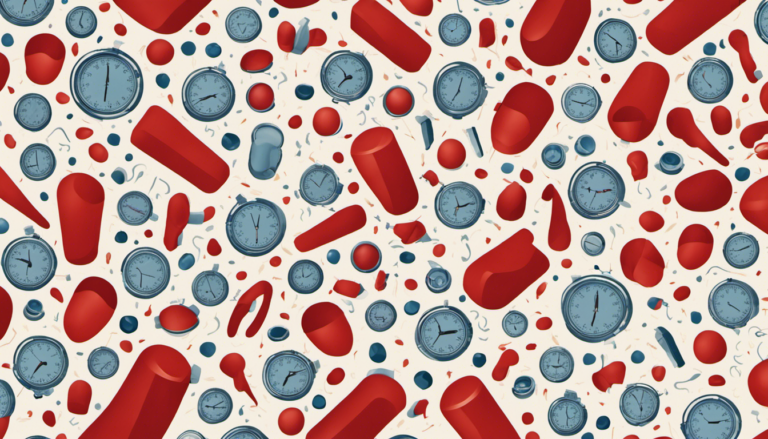Sleep Better with the Right Diet
I. Introduction
Sleep is an essential part of our lives, playing a crucial role in our physical health and cognitive function. It is during sleep that our bodies repair heart and blood vessels, balance hormones, and consolidate memory. However, the quality of sleep we get is not solely dependent on the number of hours we spend in bed. It is also significantly influenced by our diet. (source)
There is a strong connection between what we eat and how well we sleep. Certain foods can promote better sleep, while others can disrupt it. Understanding this connection can help us make better dietary choices and improve our sleep quality.
Let’s delve into the intricate relationship between diet and sleep, and explore how we can optimize our diet for better sleep.
II. Understanding Sleep
Sleep is not a uniform state of rest. It consists of several cycles, each with different stages. These stages include light sleep, deep sleep, and REM (Rapid Eye Movement) sleep. Each stage plays a unique role in maintaining our physical and mental health. (source)
Quality sleep is not just about the quantity but also about the quality. It’s about spending appropriate amounts of time in each sleep stage. Poor sleep quality or sleep disorders can lead to various health problems, including heart disease, diabetes, obesity, and depression.
Common sleep disorders include insomnia, sleep apnea, restless legs syndrome, and narcolepsy. These disorders can significantly impact a person’s quality of life, affecting their mood, energy levels, and overall health. (source)
III. The Role of Diet in Sleep Quality
Our diet plays a significant role in determining our sleep quality. Certain nutrients can influence our sleep patterns, either promoting restful sleep or causing disruptions.
For instance, nutrients like tryptophan, magnesium, calcium, and B vitamins are known to promote better sleep. On the other hand, consuming caffeine, alcohol, high-sugar foods, or heavy, fatty meals before bedtime can disrupt sleep. (source)
The timing of our meals also impacts our sleep. Eating too close to bedtime can cause discomfort and disrupt sleep, while eating at regular intervals throughout the day can help regulate our sleep-wake cycle.
IV. Foods that Promote Better Sleep
Foods rich in tryptophan, such as turkey, eggs, and cheese, can promote better sleep. Tryptophan is an amino acid that helps the body produce serotonin, a neurotransmitter that helps regulate sleep. (source)
Magnesium is another essential nutrient for sleep. It helps regulate the body’s bio clock and is found in foods like almonds, spinach, and black beans. Similarly, calcium, found in dairy products and green leafy vegetables, helps the brain produce melatonin, a hormone that regulates sleep.
B vitamins, particularly B6, B9, and B12, can also promote better sleep. They help regulate melatonin and can be found in foods like whole grains, meat, eggs, and legumes. (source)
V. Foods to Avoid for Better Sleep
Caffeine is a well-known sleep disruptor. It can stay in your system for up to 8 hours, so avoiding caffeine-rich foods and beverages, like coffee and chocolate, before bedtime can improve sleep quality. (source)
Alcohol, despite its sedative effects, can disrupt the sleep cycle, preventing you from reaching the deep stages of sleep. Similarly, high-sugar foods can cause fluctuations in blood sugar levels, leading to disturbed sleep.
Heavy, fatty meals before bedtime can also disrupt sleep. They can cause discomfort and indigestion, making it difficult to fall asleep or stay asleep. (source)
VI. The Importance of Hydration for Sleep
Hydration plays a crucial role in sleep quality. Dehydration can lead to dry mouth and throat, causing discomfort and disrupting sleep. (source)
However, it’s important to balance hydration with the need to sleep uninterrupted. Drinking too much water before bed can lead to frequent trips to the bathroom, disrupting your sleep. A good practice is to stay hydrated throughout the day and reduce fluid intake a few hours before bed.
VII. Dietary Changes for Better Sleep
Improving sleep quality through diet involves more than just adding or avoiding certain foods. It requires consistency in dietary habits and mindful eating. (source)
Regular meal times, balanced meals, and mindful eating can all contribute to better sleep. It’s also important to pay attention to portion sizes, especially for dinner, to avoid discomfort and indigestion.
Meal planning and preparation can also help in maintaining consistent dietary habits. It allows you to ensure that you’re getting the right nutrients for better sleep and helps avoid last-minute, unhealthy food choices.
VIII. Conclusion
The relationship between diet and sleep is complex and multifaceted. Our dietary choices can significantly impact our sleep quality, affecting our overall health and well-being. (source)
By understanding this relationship and making mindful dietary choices, we can improve our sleep quality and, by extension, our health. So, consider your diet as part of your sleep improvement strategy. Sweet dreams!







